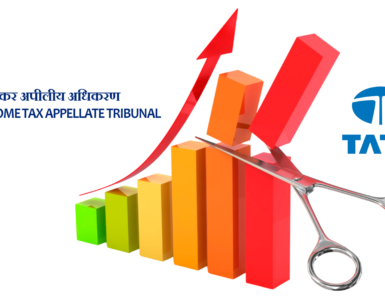SEBI Board in its meeting on 21 June 2018 has inter alia resolved:
- To amend SEBI (Substantial Acquisition of Shares and Takeovers) Regulations, 2011 (the Takeover Code 2011)
- To replace SEBI (Buy-back of Securities) Regulations, 1998 with the new of 2018
- To approve SEBI (Issue of Capital and Disclosure Requirements) Regulations, 2018
Following are the key points of consideration based on these proposals.
Amendment in the Takeover Code, 2011
Existing Regulation
As per existing regulation 18(4) of the Takeover Code, Acquirer can make upward revision in open offer price or in no. of shares to be acquired under Open Offer, upto the day prior to 3 working days before the commencement of the tendering period. Upward revision in no. of shares is subject to the other provisions of these regulations.
Proposed Amendment
It has been decided to grant additional time for upward revision of open offer price till one working day before the commencement of the tendering period.
Here, regulatory body needs to address technicality w.r.t. Reg. 18(5) of the Takeover code where there is need for newspaper announcement with the intention to inform public about the revision prior to start of tendering period. If acquirer allowed to make the upward revision up to 1 working day prior to tendering period, the public announcement will reach to public after start of the tendering period.
Amendment in SEBI (Buy-back of Securities) Regulations
Existing Regulation
Buyback period has been defined as the period between Board of directors’ resolution/date of declaration of results for special resolution authorizing the buyback of shares and the date on which payment consideration is made to the shareholders.
The SEBI Buy Back Regulations of 1998 does not specify any timeline in this regard as oppose to Section 77A of the Companies Act, 1956 and corresponding Section 68 of the Companies Act,2013 state that Buyback to be completed within 1 year from the date of passing of Special Resolution or Board Resolution, as the case may be.
Proposed Amendment
The SEBI Buy Back Regulations of 1998 does not specify any requirement in this regard. However, the new Buy Back Regulations 2018 proposes for the time period start from the date of declaration of results w.r.t. Special Resolution and not from the date of passing of Special Resolution in view of effectiveness of Resolution only after its practically announcing the results by Chairman to Stock Exchange in case of listed Company within 48 hours of the meeting of Shareholders. That means, as compare to earlier, now stakeholders can get maximum upto 2 additional days to complete buyback in 1 years’ time period.
Amendment in SEBI (Issue of Capital and Disclosure Requirements) Regulations, 2009
The Board approved the proposed SEBI (Issue of Capital and Disclosure Requirements) Regulations, (“ICDR Regulations”) 2018.
A. Meeting the Shortfall in Minimum Promoters’ Contribution
Existing Regulation
The shortfall could be met only by Alternate Investment Funds.
Proposed Amendment
Shortfall of up to 10% in minimum promoters’ contribution may be met by institutional investors such as by foreign venture capital investors, scheduled commercial banks, public financial institutions and insurance companies registered with Insurance Regulatory and Development Authority of India, in addition to Alternative Investment Funds, without being identified as “Promoters”.
This proposal will save IPOs from failing on account of inability to meet minimum promoters’ contribution.
B. Institutional Placement Programme
Existing Regulation
Companies could raise minimum public shareholding of up to 10% from Qualified Institutional Buyers.
Proposed Amendment
This chapter is completely removed. By removal of this Chapter, Companies now need to more stretch for contribution from Public in the Market to attain 25% of minimum public shareholding criteria.
C. Safety Net Arrangement
Existing Regulation
The Safety net Mechanism was introduced to build investor’s confidence in the capital market and to protect small investors in case where the price of the shares depreciate by more than 20% from the issue price. The facility was given to eligible investors to tender their shares to safety net provider to save from market fluctuations in the share price.
Proposed Amendment
The Safety Net mechanism is completely removed. This shows the intention of the regulators to enable investors to take their own decisions for their shareholdings and make the market more competitive.
D. Promoters’ Group
- Concept of immediate relative to be retained as against the proposed concept of ‘relative’.
- The shareholding threshold for identifying promoter group entity has been revised from 10 % to 20%.
- Now, a group of individuals or companies or combinations thereof holding minimum 20% of equity share capital of Promoter Body Corporate and the Issuer Company will be treated as promoter Group only if they are acting in concert as defined in the Takeover Code, 2011.
These proposals indicate that the Regulatory is intending to limit the exposure of promoter group which otherwise unnecessary limiting the activities of remotely connected persons to the promoters. This will also give relief to promoters upto limited extent from bothering of compliances for reclassification of promoter group and inter se transfer of shares.
E. Group Companies Definition
Group companies has been made more specific by clarifying that group company/ies, shall include such companies (other than promoter(s) and subsidiary (ies)) with which there were related party transactions, during the period for which financial information is disclosed (3 years), as covered under the applicable accounting standards and also other companies as considered material by the Board of the Issuer.
By this, now companies having related party transactions with the Issuer Company will also be treated as Group Companies in terms of compliance with the provisions of the ICDR Regulations. Here, regulators may also consider covering those companies with whom Issuer Company has Inter Corporate Loans and Investments, since such intercorporate transactions largely influence the standing of the Issuer Company in the market.
F. Underwriting an IPO
Existing Regulation
The companies were able to underwrite 100% of the issue (IPO) without any regard to the minimum subscription requirements.
Proposed Amendment
Underwriting will be restricted only to the subscription of the fresh issue in the main board IPO i.e. if only 90% of the fresh issue is subscribed then underwriting will be restricted to that portion only.
This is a welcome move from the Regulators.




